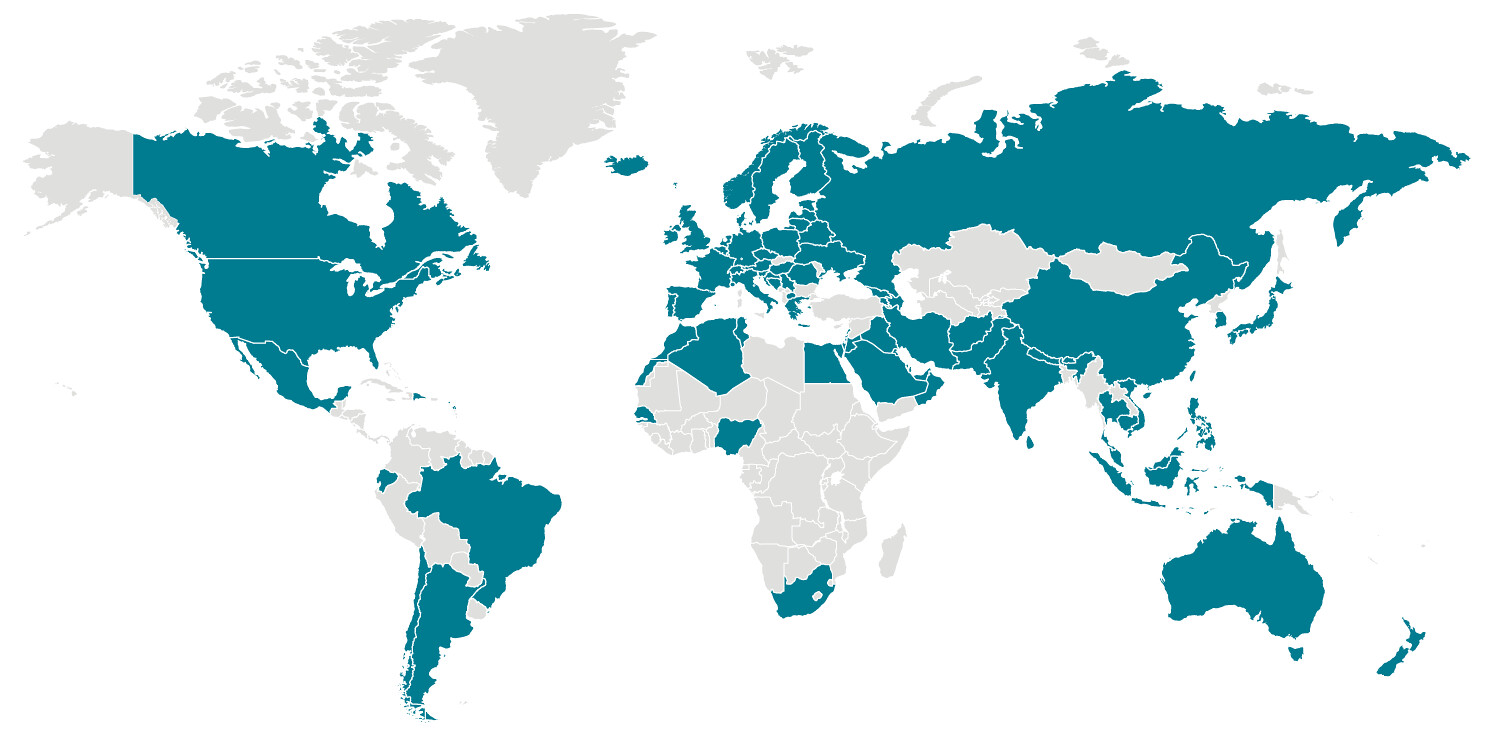The Centers for Disease Control and Prevention (CDC) map of COVID-19 infections as of March 8, 2020
1) All humans on this planet are one species, with a genetically identical composition. The Coronavirus doesn’t distinguish between any of the so-called “races” on our planet, and because the genetic make-up of people with different levels of skin pigmentation is essentially the same, and the cells of every human being are controlled by the same proteins, the infectious virus is able to penetrate and replicate using the host cell proteins of every person on the planet. We are all susceptible, and viruses show no discrimination.
2) We share remarkably similar DNA with the animal world, further highlighting the accuracies of Darwin’s observations, if there were ever any doubt.The origin of the Coronavirus is thought to be from pangolins, and the fact that the virus finds the host proteins and replication machinery of these mammals sufficiently similar to human cells highlights just how close we are to the animal kingdom.
3) Cuts in funding to science, research and pandemic resources are a drop in the proverbial bucket compared to the massive loss of money across the globe during such a pandemic. Unfortunately, it appears as though we are only at the very beginning of this pandemic, at least in Europe and North America, and already the Coronavirus pandemic is having an enormous impact on the global economy. Everything from production of goods, the entire travel industry, both nationally and internationally, with all of its offshoots that include airlines, hotels, restaurants, etc. have already been impacted. When more universities and schools begin closing, sporting and cultural events are shut down, potentially even the cancellation of the Olympics, the overall toll will be staggering. Yet the US government under President Trump “got rid” of the Pandemic Preparedness team. They proposed cutting funding to the Centers for Disease Control and the National Institutes of Health. They even tried to move funding for Ebola research and preparedness to this current crisis—endangering the citizens of this country and the world should a renewed Ebola outbreak occur. This type of shortsightedness is dangerous, because had the government spent an extra 10-15 billion dollars a year to prepare for pandemics, we might be more ready today to save lives, prevent suffering, and avoid a nation-wide/international recession. The money “saved” by not supporting science, research and pandemic preparation will seem like peanuts, unfortunately, by the time we are done with this Coronavirus pandemic.
4) Healthcare is not a luxury but essential for every citizen. In the US, the debate has raged on over the last 10-15 years over health insurance. Democrats under Obama were able to make significant roadway and help provide affordable health insurance for 25-30 million uninsured US citizens. However, despite this significant improvement, many remain uninsured in this country, and even for those who are insured, seeing a doctor when ill is often a last resort due to expensive co-payments and deductibles. Today, presidential candidate Bernie Sanders is taking things a step farther, and wants to abolish private insurance in the US in favor of a government-run single payer system that covers everyone. One can argue about the best way to provide basic health care, whether by expanding upon Obama’s system to include the remaining uninsured citizens (as democratic presidential candidate and former Vice President Joe Biden proposes), or by Sanders’ more drastic approach. However, one thing has been missing from all the ensuing discussion—it’s not just about individual health and well-being. This pandemic is reinforcing the notion that without affordable healthcare for everyone (and that obviously means around the globe), the world is at a much greater risk for every transmissible disease. It is clear that politicians and advocates of universal health coverage need to start including this as a key rationale—if for no other reason than it may finally resonate and help convince those who already have health coverage plans that unless the entire population is protected with health care, even the risk of healthy people is heightened.
5) The need to protect the elderly. The current pandemic also highlights how important it is to emphasize the need to care for our elderly populations. While the numbers are still very preliminary, not surprisingly mortality rates for novel COVID-19 Coronavirus suggest a steep incline for infected patients who are above 65 years of age—indeed there is an exponential mortality risk as the age bracket goes up. In part, this is because the elderly tend to have weaker immune systems and often suffer from other conditions. However, whatever the reason, just as society strives to keep our children safe, we need to redouble our efforts and keep our parents and grandparents safe. The sad news of the death toll at the nursing care facility in Washington State serves as a somber reminder.
6) We are all connected. In 2020, there is no such thing as being an “isolationist.”The entire globe is connected, as never before. This is both at a virtual/conceptual level, with the advent of cell phones and the internet, and at a physical/practical level, with so much international travel and movement from continent to continent. This pandemic, clearly spread by international travel and being propagated by administrative failures and a slow response to do massive testing and prevent unnecessary spread, highlights the interconnectedness of people around the world.

